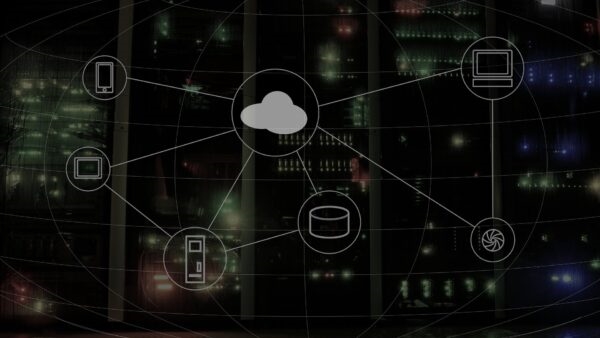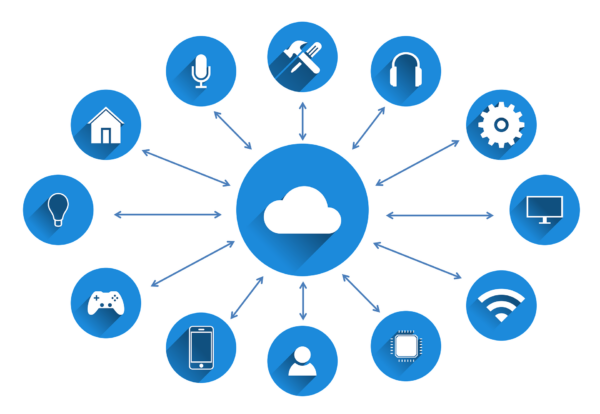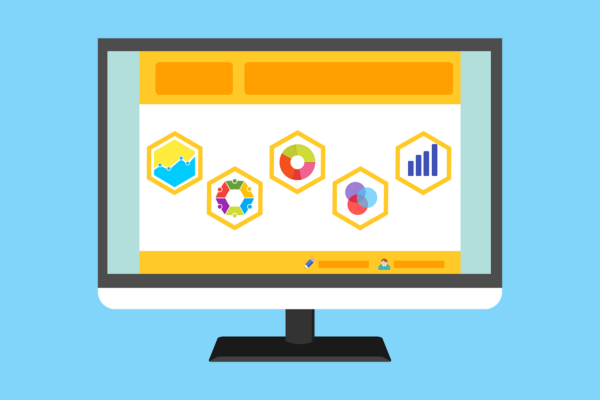Between 2017 and 2022, the enterprise resource planning (ERP) market is expected to accumulate $ 47 billion in revenue. A compound annual growth rate of 7% is anticipated. The sector isn’t just for huge global corporations. ERP solutions are a valuable tool for small, medium, and large outfits, too.
All modern organizations need structures in place to manage their operations. That applies to online businesses, bricks and mortar companies, and multinational enterprises.
For that reason, ERP has become increasingly important for ecommerce ventures. Plus, competition is fierce and operators are seeking ways to stand out from the crowd.
Moreover, the way people shop has changed. With more shoppers buying goods online, ecommerce is an expanding industry.
If you own a growing online business and are looking to streamline your processes, it’s likely you’re considering an ERP ecommerce solution.
We can help you there. Continue reading for an overview of what the software can do for your business, as well as a selection of specific solutions to mull over.
What is ERP?
Enterprise resource planning (ERP) software automates and supports administrative and operational processes.
The term was introduced back in the 90s. At that time, most ERP tools were installed on the client’s server and housed in their data centers. Things have changed since then – more on that in the next section.
ERP software helps companies manage their day-to-day business activities. Areas such as inventory management, price estimation, and keeping track of sales. Plus accounting, risk management, and financing.
An ERP solution is capable of integrating a multitude of business processes into a single system.
That’s achieved by leveraging artificial intelligence and machine learning technologies, among others. A suite of enterprise resource planning applications talk to one another. Each app concentrates on a single business function, such as sales or logistics. The applications all share a database and can be combined as required.
ERP systems also come with customer service advantages. How? Via marketing automation and enhanced customer interaction.
What’s more, ERP software can be applied across an array of industries. Some platforms are better suited to a specific vertical; others work best for midsize businesses.
Small business ERP can help you ditch the spreadsheets and grow with you. Midmarket companies can use ERP for built-in analytics and scaling. And large corporations can utilize enterprise ERP for a robust system that can be rolled out globally.
What is Cloud ERP?

Cloud ERP refers to solutions that are provided and managed in the cloud rather than at the business site (on-premises). As technology has advanced, an increasing number of companies of all sizes are thinking about cloud ERP.
Why? Factors such as speed, access, cost, and reliability.
By choosing an ERP solution that’s hosted online in the cloud, businesses can scale more easily. And security is guaranteed as well.
Time is freed up to work on other projects, such as creating compelling content for your ecommerce website and an engaging sales page.
Signs Your Ecommerce Business is Ready for ERP
If you find you’re spending excessive time on daily admin work, too many scattered applications may be the cause. While utilizing project scheduling tools to ease your workload helps, sometimes there’s just too many tasks on the day-to-day to do list. If your remote business is growing and your processes are getting more complex, you may be struggling to keep on top of them.
For example, is it becoming harder to manage your inventory levels or track customer satisfaction?
Do you have important figures and metrics spread across disparate systems making it hard for you to collate info and generate reports?
Are you spending so much time on the day-to-day running of your ecommerce site that you’re missing out on creative opportunities?
If the answer to any or all of these questions is yes, it’s time to integrate data into a single ERP solution.
ERP Ecommerce Integration
Successful ecommerce and ERP integration helps information transfer quickly. For example, customer profiles, availability of stock, and sales order detail. By rapidly transferring data such as that, an ecommerce business can scale and grow with ease.
Without ERP functionality, the risk of manual error rises and customer satisfaction may fall.
ERP solutions that are designed for ecommerce businesses should:
- Enhance customer relationship management (CRM)
- Increase order volume
- Reduce inventory costs
- Raise product visibility
- Integrate seamlessly
- Lead to a fall in data redundancy errors
For example, let’s say your business uses indispensable team collaboration tools. In that case, it’s important your ERP solution integrates flawlessly.
If you’re a retailer who uses a platform such as Magento, Shopify, or BigCommerce, your ERP system should integrate smoothly with that, too.
Nowadays, customer satisfaction is key. Shoppers care about their online experience more than ever. Because of that, you want your ERP system to improve the customer experience.
How? Via intelligent marketing, order customization, and automated chatbots. Features like these require a modern ERP solution.
Advantages of Ecommerce ERP
ERP ecommerce systems bring with them a range of business benefits. These include:
- Reduced inventory costs
- Removal of unnecessary data entry
- Improved financial analysis
- Enhanced productivity and efficiency
- More time for innovation
- Process standardization
- Automated tax compliance
- IT savings
- Improved ability to leverage existing customer info
For instance, saving money on IT costs frees up money to invest. How about spending some saved dollars on video conferencing tools? Or Voice over Internet Protocol (VoIP) phone technology.
Now you’re armed with the basics, let’s move on to our carefully-selected, first-rate ERP tools.
15 Best ERP Solutions for Ecommerce
There are a host of reliable ERP systems out there; it can be overwhelming picking the right one for your ecommerce business. We’ve outlined 15 ERP ecommerce platforms for you to ponder.
Brightpearl
Brightpearl is a unique platform for retail and wholesale businesses. Their solutions include inventory management, sales order management, and retail accounting. Plus workflow automation and CRM.
Let’s say you’ve been mulling over sales software solutions. You may choose to go with Brightpearl for your CRM needs. Why? Because all customers’ details and order history can be managed in one place. That makes it straightforward for you to provide personalized consumer experiences.
What else? The Software as a Service (SaaS) structure Brightpearl has in place was created to scale with your business. To facilitate that, there are a handful of service tiers. These provide different infrastructure grades depending on the size of your operation.
Brightpearl also offers high-performance, pre-built integrations. These connect to third-party applications such as Slack. Their integrations connect to other services, too, if you’re looking for more flexibility.
ECI Software Solutions

Offering cloud-based technologies, here is a company that serves a variety of niches. These include manufacturing, home and building supplies, and land developers. Plus, office technology and equipment maintenance.
Aimed at medium businesses, ECI’s solutions are industry-specific. For example, if your ecommerce operation centers around manufacturing, there are four options. Choose from M1, JobBOSS, Macola, or MAX depending on your needs.
Sage
Turning 40 in 2021, Sage focuses on serving small and medium organizations. Choose from a range of products covering accounting, finance, people, and payroll.
Opt for Sage 200cloud and enjoy a customizable solution. Keep on top of manufacturing processes, customers, and payments with ease. Go for Sage Business Cloud Payroll and benefit from an easy, four-step payroll process.
Microsoft Dynamics 365
This solution can be applied to any business size and is used for supply chain management, inventory, distribution, and maintenance.
Their AX solution is better suited to larger businesses. Why? The technology is geared to both financial management and operations.
Oracle NetSuite
Offering a collection of cloud-based applications, NetSuite’s ERP solution runs on a large number of browsers. Automate key business functions across areas such as billing, CRM, finance, and inventory.
There’s business intelligence with real-time reporting, and built-in security too. We all know how important cybersecurity is in the digital age.
Founded in 1998, their ERP technology can be applied to businesses of all sizes across all industries.
Magento
A free and open-source ERP tool, this ERP ecommerce solution is easy to use. There’s no need for special expertise, with the system managing processes such as payroll and supply.
Magento regularly adds new plugins and extensions. These are user-friendly and offer consistent improvements for your online store.
For example, the release of Magento 2.4 introduced significant security updates. As well as enhanced infrastructure and performance advancements.
osCommerce

A second free and open-source ERP solution, this is a customizable tool that’s easy to install. It caters to both the front-end and the backend of your ecommerce business.
Features include product and catalog management and sales management. And there are sub-services on offer too, such as tax handling, order processing, and customer management.
Aquilon Software
Celebrating its 15th Birthday in 2021, Aquilon is geared to mid-sized companies and startups. Their ERP solution has 17 modules. These support functions such as financial management, supply chain, and manufacturing. Additionally, the software delivers report writing with ease.
Furthermore, their Aquilon2Go add-on has been designed to help business owners on the go. The service provides up-to-date customer, pricing, and inventory data to any smart device.
DDI System
This company has a strong focus on ecommerce and distribution-related industries. And their products are designed for smartphone viewing. Features include embedded CRM tools, mobile business management, and intuitive drill-down reporting.
Available on-premises or via the cloud, the solution has a real-time portal to view payments and invoices.
Aptean
Operating since 2012, Aptean provides planning solutions for a number of industries. These include financial services, distribution and retail, food and beverage, and industrial manufacturing.
Their strategic pillars center around operational excellence, customer experience, company growth, and teamwork. And the solutions include JustFood ERP, Retail ERP, and Encompix ERP for manufacturing.
SAP
SAP’s cloud solution covers a range of areas. These include CRM, product lifecycle management, and financials. And they span many industries such as retail, distribution, manufacturing, and services.
Serving small and medium businesses, their S/4HANA technology offers real-time analytics. Furthermore, the system has industry-specific and machine learning capabilities.
Acumatica
A flexible ERP solution, this modular software allows business owners to add new features as and when they require them. It features customer management, packaging, shipping, and inventory capabilities.
Speed up order processing, streamline your returns process, and provide an omnichannel experience. Choose from six cloud-based solutions depending on your needs.
Epicor

Operating via the cloud and on-premises, this tool is used by many industries. These range from food and beverage to timber and distribution. There are several options, from BisTrack for manufacturing to iScala for global businesses.
The solutions assist with a number of business needs from reporting and analytics to human resource management.
Synchronous ERP
Synchronous is a cloud-based solution for CRM, supply chain management, and manufacturing execution. Used by the fashion industry, this solution comes with a mobile app and no hard coding is required.
While we’re talking about mobile applications, there’s a selection of free business apps that can help you step away from your desk and work on the go.
Back to Sync: other features include shipping goods consistently on time and finance co-ordination. As well as real-time resource visibility.
BlueCherry
This tool by Computer Generated Solutions (CGS) was created for apparel and footwear companies. The solution caters to the needs of these businesses with regard to design and product development. It also addresses logistics and sales, simplifying the whole process.
Brands are able to manage processes end-to-end, improving their competitiveness.
ERP Ecommerce Solutions
Reports show that 95% of businesses see an improvement in some or all of their processes after implementing an ERP solution. But deciding on a tool can be a daunting task.
Issues range from understanding what an ERP solution can do for your ecommerce business to weighing up the options. It depends on your specific online business and what you’re looking for from an ERP system.
Evaluate our 15 top choices – which ERP ecommerce solution is the frontrunner for you?
Digital & Social Articles on Business 2 Community
(145)
Report Post






